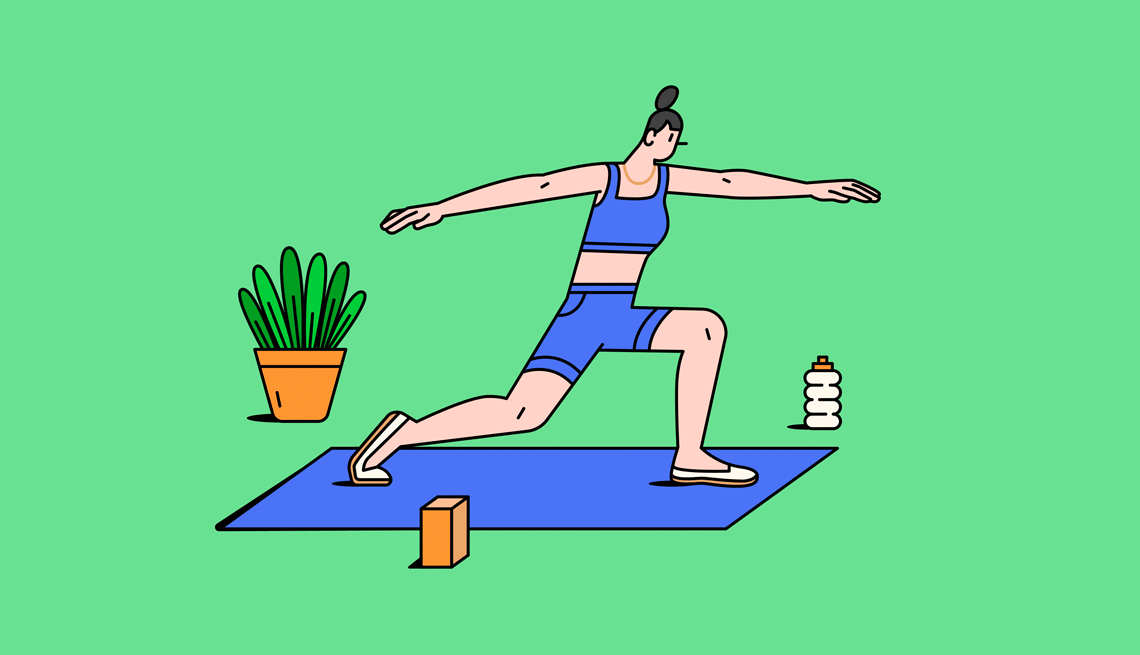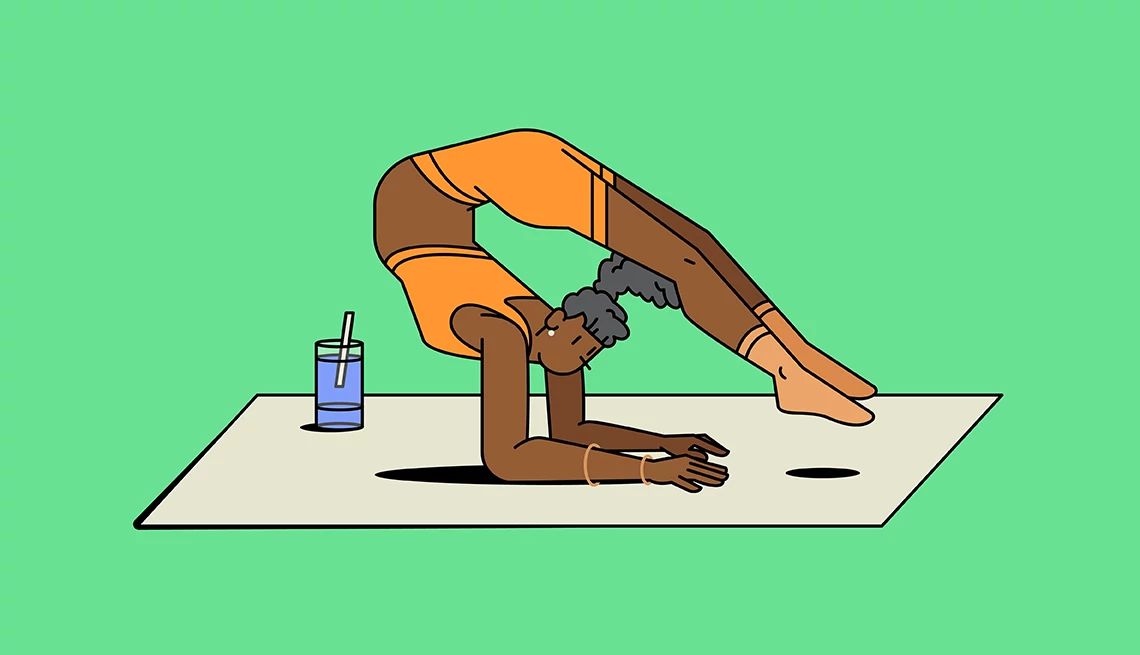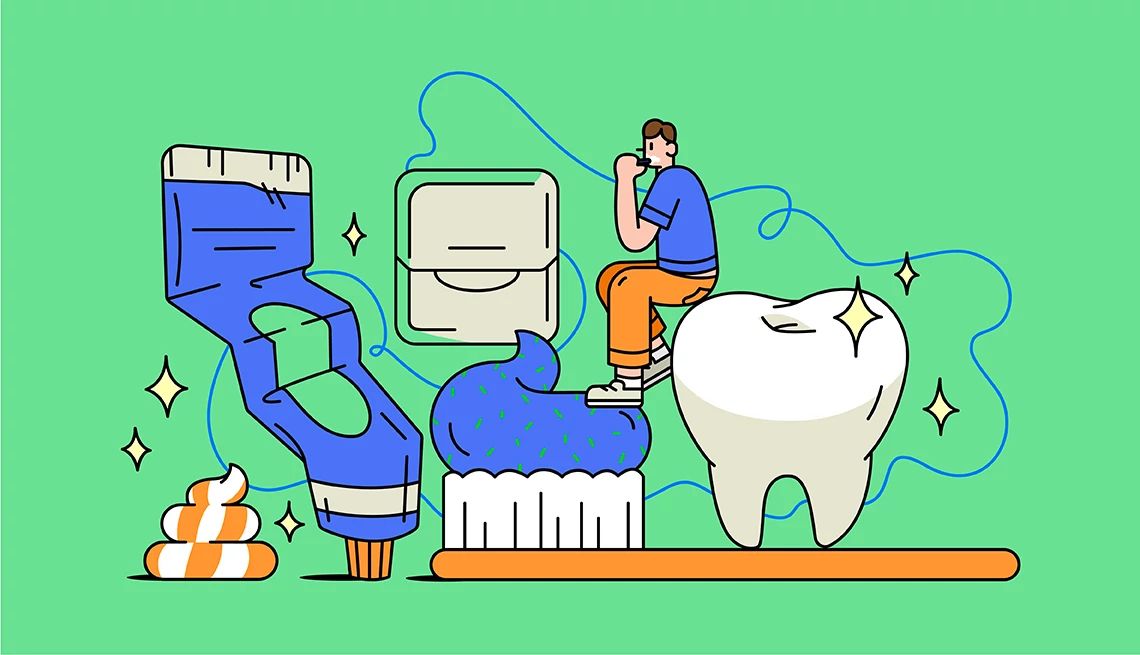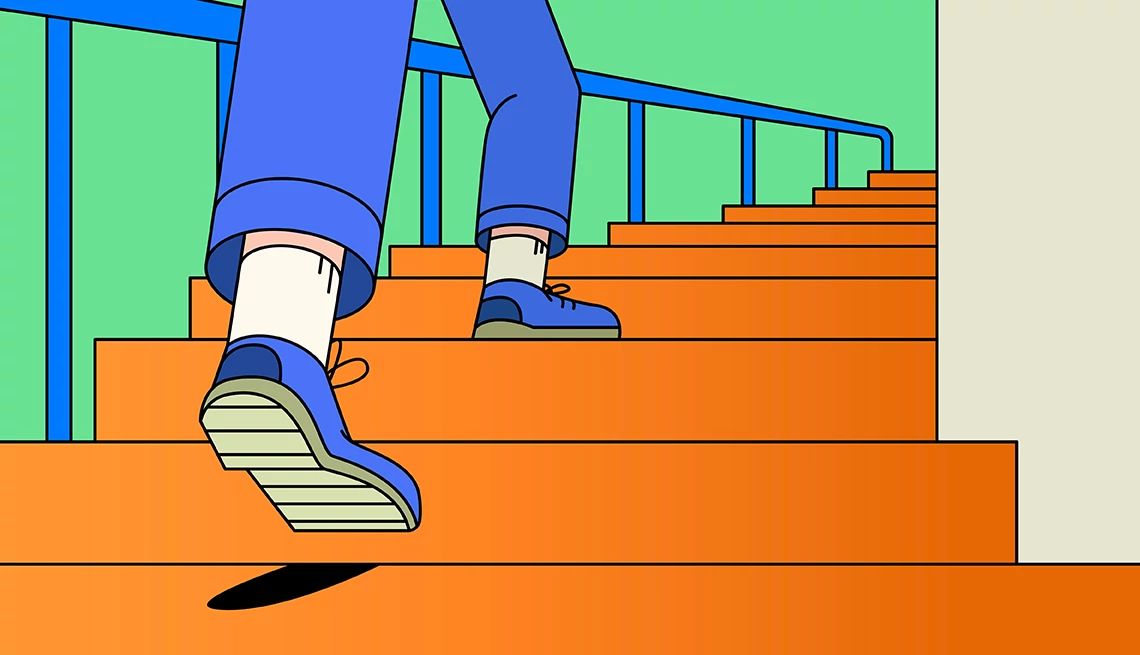AARP Hearing Center


Nobody lives forever. But if you’re aiming for a longer — and healthier —lifespan, these science-based steps could help.
1. Volunteer an hour a week
A new study based on data reported by 2,605 Americans ages 62 and older found that showing up for others for as little as an hour a week was linked to slower biological aging. The association was particularly strong for older retired people. Biological aging is measured with tools that determine how old our tissues and cells are compared to our chronological age, and reflects how behavior and the environment have caused changes in the expression of our DNA that accelerate the aging process. Published in Social Science & Medicine, the study is just the latest to show a connection between volunteering and biological aging, so it pays to make time to help others. To get started, go to AARP’s volunteer portal, Create the Good.
2. Just move!
A large analysis of studies in the Canadian Medical Association Journal gives us some of the best evidence yet that exercising 150 minutes a week (for example, a 30-minute workout five times a week, or a 45-minute session three times a week) can extend your life. Following these standard guidelines “results in a reduction of all-cause mortality by almost a third, compared with no physical activity,” says study author Jane Thorton, M.D., of Western University in Ontario. Getting sweaty combats not only chronic conditions like heart disease and diabetes but also infectious diseases, and it may even improve vaccine efficacy. “This may be a new way where physical activity can have an additional positive effect on lifespan,” says Thornton. Check out dozens of free fitness videos here. AARP members can also get fit with our Pilates Anytime video series.
3. Build your brawn
You need strong muscles to live a healthy and long life. A review of 38 studies that represented about 2 million men and women, published in the Archives of Physical Medicine and Rehabilitation, makes the case. People with high levels of muscle strength based on a knee extension test had a 14 percent lower risk of death. And people with higher levels of handgrip strength were likely to outlive those with a weaker grip. Although walking and swimming are great ways to stay fit, working out with weights or resistance bands is one of the best ways to power up your muscles. Experts recommend strength training two or three times a week for optimal results. Here are three strength training videos to try.
4. Try this anti-aging trifecta
The hunches of the researchers who oversaw a three-year clinical trial across five countries in Europe proved correct: A combination of two supplements — omega-3 fatty acids and vitamin D — and a home exercise program slowed biological aging in a group of 777 people ages 70 and over. Participants got the benefit by taking 1 gram of an omega-3 supplement (330 mg EPA plus 660 mg DHA) and 2,000 IUs of vitamin D a day, and performing a strength training routine for 30 minutes, three times a week. The omega-3s alone slowed biological aging, the scientists concluded, but vitamin D and exercise had additive effects, according to the study, which was published in Nature Aging. Just make sure you talk to your doctor before starting even these common supplements, because many of them interact with medications that can cause side effects.


5. Enjoy your coffee — but drink it in the morning
Your morning Joe starts the day right — and may also add years to your life. In the first of two recent studies, drinking about three cups of coffee a day was linked to an extra 1.8 years of life. In the second study of more than 40,000 people, published in the European Heart Journal, morning coffee drinkers were 16 percent less likely to die of any cause, and 31 percent less likely to die of heart disease, compared with people who did not drink coffee. (All-day coffee drinkers didn’t get the perk, however.) The reason why all-day coffee drinkers didn't have the longevity benefit is unclear, but study author Lu Qi, M.D., interim chair of epidemiology at Tulane University in New Orleans, says, “Coffee-drinking time may affect sleep behaviors and changes of fluctuations of hormones such as melatonin and cortisol, which may affect health.”
6. Wear your hearing aids
It can be hard to get used to hearing aids. Achieving a good fit can require fine-tuning and extra office visits. But failing to use your hearing aids has a cost beyond having to strain to hear others speak, according to a recent study. Published in The Lancet Healthy Longevity, research showed that people who use their hearing aids regularly have a 24 percent lower risk of early death than those who don’t. “Untreated hearing loss has been associated with social isolation, depression, reduced physical activity and cognitive decline — all of which are linked to a higher mortality risk,” says study author Janet Choi, M.D., an otolaryngologist at Keck Medicine of the University of Southern California. Better hearing also improves communication with health care providers, which may lead to better adherence to treatment. To see if you have hearing loss, AARP members can take a free at-home hearing test once a year. Find out how to take the National Hearing Test.
7. Step it up
Increasing your lifespan can be as easy as putting one foot in front of the other. Research from 78,500 people ages 40 to 79, published in JAMA Internal Medicine, showed that walking 10,000 steps a day lowers the risk of an early death by 36 percent. And while more steps is always better, other data suggests you can still get a longevity benefit by taking just 3,867 steps. That study, from the European Journal of Preventive Cardiology, combined 17 other studies with a total of more than 226,000 people to reach this conclusion. Raising the count to 5,537 steps, 7,370 steps and 11,529 steps was linked with a 48 percent, 55 percent and 67 percent lower risk of dying, respectively. So put on your walking shoes and pack a step counter or your smartphone!
8. Pick up the pace
How fast you walk can also make a difference in how long you live. A study in Medicine & Science in Sports & Exercise of more than 318,000 people ages 40 to 69 found that a slow walking pace was linked to a higher risk of dying, even if slow walkers covered the same distance as fast walkers. Men and women with a brisk walking pace had, respectively, a 21 percent and 27 percent reduced risk of death from any cause, compared to slower walkers. Be sure to speed up gradually. You might breathe more heavily at first, but you should still be able to carry on a conversation. For a chart of walking speed goals by age, check out 5 Tests to See How Well You Are Aging.









































































You Might Also Like
10 Exercises to Help Keep You Healthy
Simple moves to stay strong and independent long into the future
25 Great Superfoods for Longevity
Delicious foods tied to lower risk of disease and death
Try These Tips for Living a Healthier Life
Small changes can add up to big mental and physical results